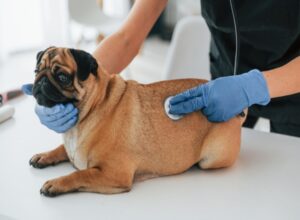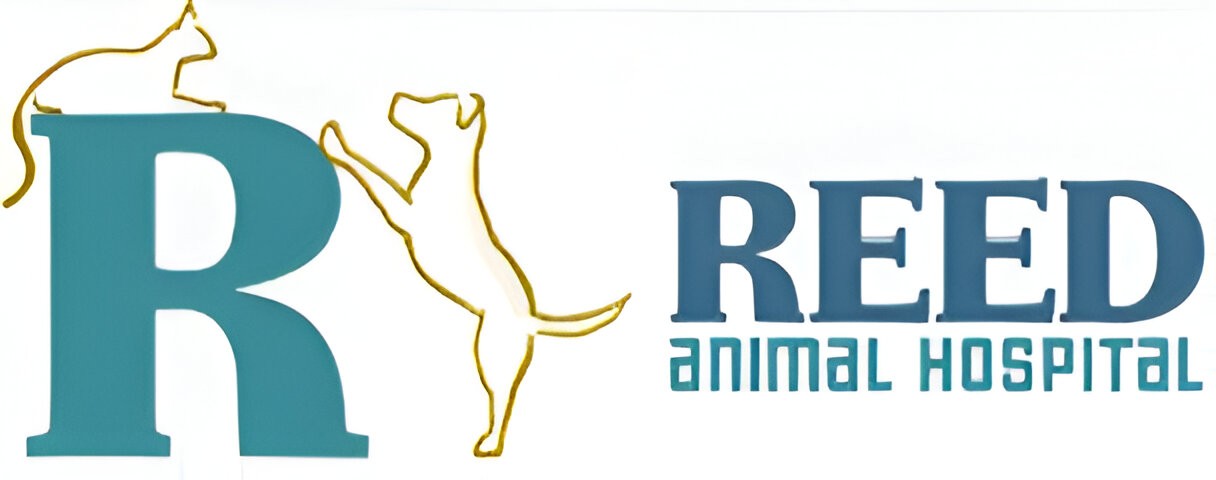COPD in Dogs
Managing COPD in Dogs with Proper Care Tips
Reed Animal Hospital has ample experience treating a wide array of injuries and illnesses in dogs, cats, and other pets. One brutal condition that can affect your dog is Canine COPD (Chronic Obstructive Pulmonary Disease). People typically think of this disease affecting humans, but their furry, four-legged family members are also susceptible to it, including in Campbell, Saratoga, and San Jose, CA. With COPD in dogs, it’s important to diagnose and treat it quickly and provide ongoing care to help these animals live as long and comfortably as possible. Below, we’ve provided valuable information about this illness and what you can do about it.

A Brief Overview of What COPD Is
Chronic Obstructive Pulmonary Disease (COPD) is a progressive condition that impacts the respiratory system, causing airflow obstruction and difficulty breathing. Though commonly associated with humans, dogs can also develop COPD, often due to prolonged exposure to irritants such as smoke, dust, or chemicals. Symptoms in dogs may include persistent coughing, wheezing, reduced exercise tolerance, and labored breathing. Over time, the disease can severely affect their quality of life, as the lungs’ ability to function deteriorates. Early diagnosis and management, including medication and minimizing environmental triggers, are essential to slowing its progression and ensuring a more comfortable life for affected humans and dogs.
What Is Canine COPD?
Canine Chronic Obstructive Pulmonary Disease (COPD) is a respiratory condition where a dog’s airways become inflamed and obstructed, leading to breathing difficulties. This chronic illness affects the lungs by causing the airways to narrow and the alveoli, which are responsible for gas exchange, to lose their efficiency. Over time, excessive mucus production and permanent lung damage can occur, impairing oxygen delivery to the body. Canine COPD is progressive, requiring lifelong management to alleviate symptoms and improve the dog’s quality of life.
Common Causes of COPD in Dogs
Chronic obstructive pulmonary disease (COPD) is often seen in older dogs, but its exact cause remains unclear. Factors like exposure to air pollutants, tobacco smoke, or recurring respiratory infections could contribute to inflammation in the lungs. Dental disease may also increase the risk, as bacteria from the mouth can spread to the lungs and potentially cause infections that trigger inflammation. Additionally, obesity can worsen COPD symptoms, making it harder for affected dogs to breathe. Reed Animal Hospital’s staff will gladly discuss what could cause COPD in your dog.
Signs and Symptoms You Should Watch For
A lingering dry cough lasting over a month can be an early indicator of COPD in dogs. Some dogs may also gag after a coughing episode. As the condition advances, additional signs often appear, such as the following:
- Fainting during activity
- Bluish gums
- Low energy or quick exhaustion
- Wheezing sounds
- Heavy or labored breathing
Diagnosing COPD in Dogs
To diagnose COPD in dogs, the vet at Reed Animal Hospital will start with a detailed physical examination to identify any symptoms of the condition. Various diagnostic tests may also be performed. Common signs of COPD include abnormal crackling noises in the chest during breathing, sinus arrhythmia, a low or normal heart rate, and a persistent cough.
Treatment Options for Canine COPD
If your dog struggles with serious breathing issues, hospitalization might be necessary. During their stay, they may receive oxygen therapy and intravenous medications to help improve their condition and stabilize them. For milder cases of COPD in dogs, your dog may receive outpatient care, which could include a mix of treatments and medications like cough suppressants, mucolytics, bronchodilators, corticosteroids, and antibiotics.
Home Care and Prevention Advice
At home, you can care for your dog with the following measures:
- Keep your dog away from irritants like cigarette smoke because it can worsen breathing issues. Reducing exposure can lower the risk of complications and make it easier for your pet to breathe.
- A veterinarian might suggest adjusting your dog’s diet or introducing light exercise to help shed excess weight.
- Switching to a harness instead of a collar can alleviate unnecessary pressure on your dog’s airway.
- Scheduling professional dental cleanings for your dog can help remove harmful bacteria from their mouth, reducing the risk of serious oral and overall health problems.
When Should My Dog Visit a Veterinarian?
You should take your dog to see a veterinarian as soon as you notice symptoms like persistent coughing, difficulty breathing, lethargy, or a decreased appetite. Regular checkups at Reed Animal Hospital are essential if your dog has been diagnosed with COPD. Immediate veterinary attention is vital if symptoms worsen suddenly. This situation may indicate a severe flare-up requiring prompt medical intervention to prevent further complications.
Learn How Reed Animal Hospital Can Help
Reed Animal Hospital is one of the leading veterinary resources for Campbell, Saratoga, and San Jose, CA, pet owners. We offer emergency services for sudden and severe animal issues and routine care to keep your furry friends in optimal health. If your dog develops symptoms of COPD, please don’t hesitate to bring them in for a professional diagnosis and treatment. Contact us today to schedule an appointment at our office.

